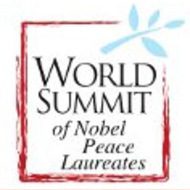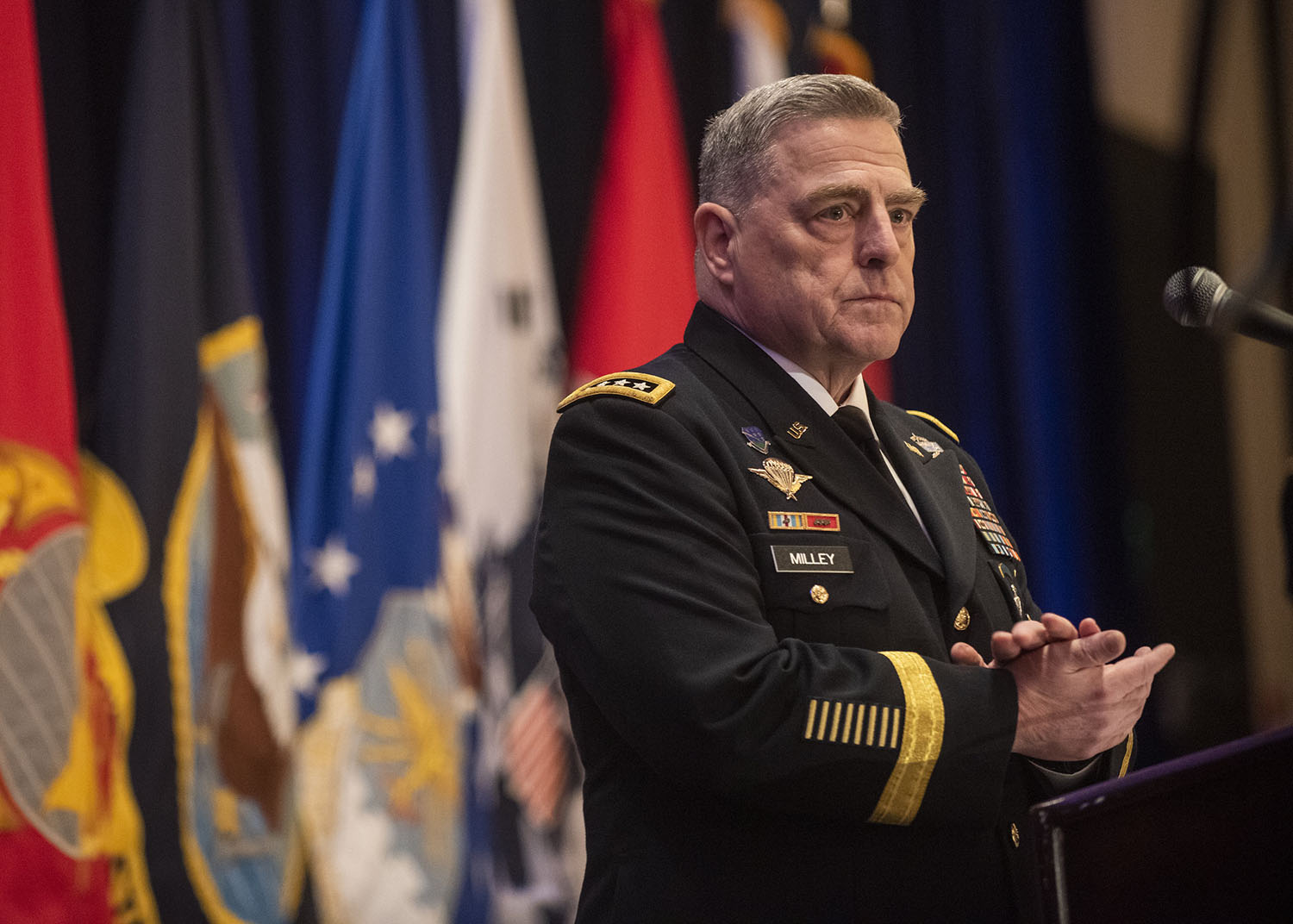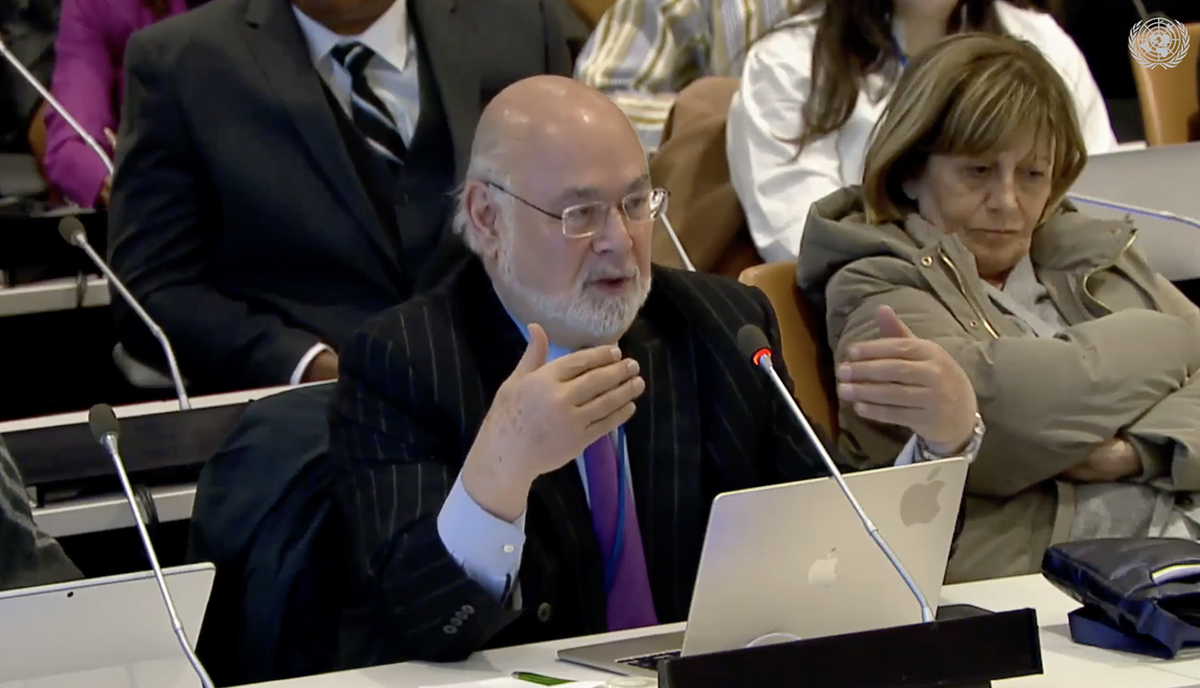By Senator Douglas Roche, O.C.
October 19-20, 2002
Rome
SUMMARY: The 3rd World Summit of Nobel Peace Laureates was held at Rome October 19-20, 2002, under the sponsorship of Mikhail Gorbachev, President of the Gorbachev Foundation and the Nobel Peace Laureate of 1990. Under President Gorbachev’s leadership, a statement was issued, to be distributed throughout the U.N. system and to many world leaders, calling for a solution to the Iraq-U.S. crisis by the U.N. Security Council and not unilateral action. Security Council resolutions must be fully adhered to, and the rights of the Iraqi people respected. The struggle against terrorism must not become a pretext for unjust constraints on human rights. The statement sharply criticized new military doctrines which make a pre-emptive nuclear weapons attack possible. The statement, calling for the abolition of nuclear and other weapons of mass destruction, said: “Nuclear weapons are immoral and every use of them is illegal.” The statement concluded: “A culture of peace must overcome today’s culture of war.” With the theme of the meeting, “Beyond Johannesburg: Water Emergency and Other Emergencies of the World,” participants supported a “Water for Peace” initiative flowing out of the Johannesburg Declaration, “Battle for the Planet,” signed by six Nobel laureates and the mayors of several large cities. Six Nobel Peace laureates attended the Rome meeting with the representatives of 14 other organizations that received the Nobel Peace Prize. President Gorbachev awarded a “Man of Peace” prize to Italian actor-director Roberto Benigni.
1. A two-day program dealing with wide themes of war and violence, international terrorism, poverty, water and the ecological crisis was attended by Nobel Peace Laureates: Adolfo Perez Esquivel (1980), Mikhail Gorbachev (1990), Lech Walesa (1983), Rigoberta Menchù (1992), Joseph Rotblat (1995), Betty Williams (1976) and these Nobel Prize-winning organizations: Institut de Droit International, International Peace Bureau (represented by Senator Douglas Roche, O.C. of Canada), International Red Cross, American Friends Service Committtee, UNHCR, UNICEF, International Labour Organization, Amnesty International, International Physicians for the Prevention of Nuclear War, United Nations Peace-keeping Forces, Pugwash Conferences on Science and World Affairs, International Campaign to Ban Landmines, Medecins Sans Frontières, United Nations. Messages were sent by U.N. Secretary-General Kofi Annan (2001), Yasser Arafat (1994) and Aung San Suu Kyi (1991). The meeting was held at the Roman Campidoglio, overlooking the ruins of the Roman Forum, with Mayor Walter Veltroni as co-sponsor. A City of Rome reception and concert at the Fontana di Trevi were included in the program.
2. A strong presence at the meeting, President Gorbachev insisted that, with the 2002 Johannesburg Summit ending in some ambiguity, this Nobel meeting should send out a clear signal to the world: a crisis of civilization exists, brought about by war, violence and the instability caused by poverty. The status quo of dominance by a few cannot be allowed to continue. He warned about the over-abundance of power in NATO, now expanding once again, which possesses 70 percent of the military power in the world. Quoting President John F. Kennedy’s famous address to American University June 10, 1963, Mr. Gorbachev said a Pax Americana was not what was needed today; rather the cooperation of all must overcome the tendencies of unilateral domination. Thirty-one countries now have the ability to develop a nuclear weapon, and that is a terrifying situation. He excoriated governments for pleading that they did not have enough money to cure poverty but, at the same time, spent enormous sums on arms. He especially criticized the development of nuclear weapons. This will go on and on, he said, unless the world community is energized to stop it. Certainly, he said, new weapons are not needed to fight terrorism. Take a principled position against nuclear weapons, he urged. The world could contribute to the alleviation of terrorism by implementing new models of development. Expressing a strong no to nuclear war, he said, let us get on to the next stage of civilization. The meeting gave him prolonged applause.
3. The participants called on both Palestinians and Israelis to reject extremism and violence. On Iraq, the final statement said:
The problems concerning Iraq must be resolved on the basis of United Nations Security Council resolutions. Unilateral action is not acceptable. The world community must ensure that Security Council resolutions are fully adhered to. This will help normalize the situation in the Middle East and bring stability and safety to the region. In particular, this implies respect for the rights of the Iraqi people, and for Iraqi sovereignty and territorial integrity.
4. A two-hour “Extraordinary Session” was held, co-chaired by Senator Douglas Roche, O.C., and Jonathan Granoff, President of Global Security Institute, on “Overcoming Unilateral Militarism: Responding to Threats to Human Security.” With the Nobel laureates and the representatives of Nobel organizations grouped around a table, the discussion ranged from the urgency of today’s crisis to the need to preserve human rights values while fighting terrorism, and the need for a code of ethics for scientists. Some highlights:
a) Nobel laureate Betty Williams insisted that female Nobel laureates could play a stronger role for peace and said a delegation of women should be sent to Iraq to let the suffering people of that country know they have much support in the outside world. Bypass the superpowers, she said, take positive action.
b) Professor Joseph Rotblat, following up his earlier address, “The Nuclear Threat Is Real,” said that resumed nuclear testing (of the new “bunker-buster” nuclear weapon) could lead to nuclear war. He pointed to the outstanding contradiction of our time: “Nuclear weapons are horrible-we are told-and their possession must not be allowed by countries like Iraq, but the possession and use of these weapons by the United States is justified for the sake of world peace.”
c) Lech Walesa, the Nobel laureate who is a former President of Poland, said his thinking is somewhat different from what he had been hearing. The September 11 tragedy could hardly have been responded to as effectively by the United Nations as it was by the United States. Until the U.N. itself had a force to combat terrorism and keep the peace, he said, we should be grateful for the action of the U.S. It was the U.S. that brought an end to fighting in the Balkans. To stop Iraq, there is presently no alternative to the U.S. However, in considering the draft statement which included the reference to the immorality and illegality of nuclear weapons, President Walesa said that, even though this went against the prevailing doctrine of the nuclear powers, it was important to make this statement and he would support it.
d) Dr. Ron McCoy, president of International Physicians for the Prevention of Nuclear War, noting that China had thus far been neglected in the discussion, suggested that the real reason for the U.S. National Missile Defence system may be protection against what the U.S. deems as a possible future enemy in China. He said developments in China should be watched carefully. The future, he added, contained the possibility of genetic weapons. For the present, we must beware of unleashing uncontrollable forces set off by a “Muslim martyr,” through a war against Iraq. Long-range strategies by an informed civil society breaking through the media blanket are needed for true security. He appealed for Nobel laureates to promote the U.N. Study on Disarmament and Non-Proliferation Education, released October 9 by the United Nations.
e) Summarizing, Jonathan Granoff pointed to the “two incompatible visions” today: the 2000 NPT Review’s 13 Practical Steps under the rule of law, and the United States Space Command’s Vision 2020, a unilateralist approach to U.S. security. He called for cooperation to bring the world’s cultures and economies together for true global security.
5. The Nobel Meeting endorsed the “Water for Peace” initiative of Green Cross International, whose Vice-President, Alexander Likhotal, warned of future wars fought over water. Increasing the access of people to water, he said, “is a tool of peace.” Solving the global water crisis is key to sustainable development.
6. The Meeting also endorsed the Johannesburg Declaration, “Battle for the Planet.” This statement summarized world conditions:
We stand at a critical moment in Earth’s history: a time when humanity must choose its future. As the world becomes increasingly interdependent and fragile, the future holds great peril, and we, the People, have great responsibilities. Ten years ago, the world was swept up in a wave of optimism with the end of the Cold War and the adoption of Agenda 21 at the Rio Earth Summit. Today, however, the report on the state of the planet is overwhelming: the environment continues to deteriorate, poverty is increasing and the number of armed conflicts is on the rise. In addition, the globalizing economy appears to thwart all possibility for change. The main causes of an unsustainable future include: growing populations, which need more energy and resources; affluence, which increases material consumption and waste; poverty, which limits choices on how to use the environment; technologies, which use energy and dispose of waste inefficiently; insecurity, which leads to massive spending on military budgets and the construction of nuclear, chemical and biological weapons of mass destruction; and financial institutions and policies, which avoid addressing the most pressing problems and exclude stakeholders and key social actors, especially women, indigenous people and the poor.
“Battle for the Planet” demanded, inter alia, that governments:
– Commit resources to halve global poverty by 2015.
– Adopt a common ethical framework and recognize the Earth Charter to build global partnerships for sustainable development.
– Reform the U.N. system to give the U.N. more power to enforce decisions for peace.
– Increase Official Development Assistance (ODA) to help developing countries eliminate crippling debts.
7. The role of the Nobel Peace laureates themselves came under examination, with several participants encouraging a more concerted, active role as messengers of peace. The possibility for such action was considered enhanced by the award to the latest recipient, Jimmy Carter, former President of the United States.







